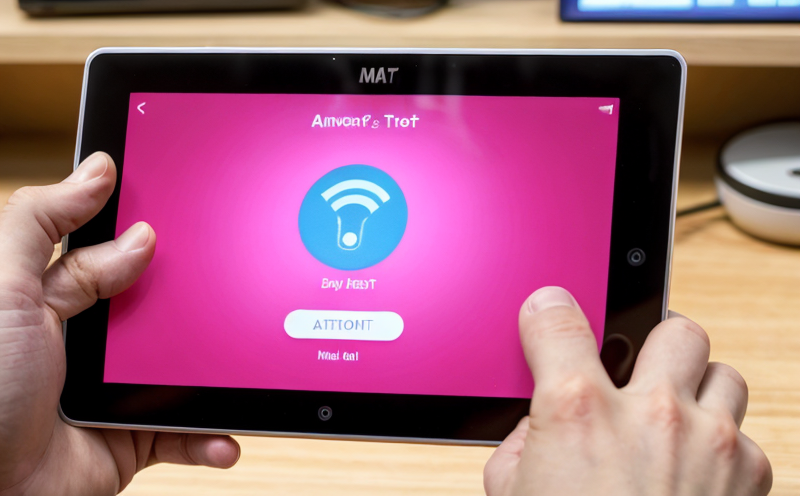Data Privacy Compliance Testing in IoT Devices
In today’s interconnected world, smart and connected consumer devices have become an integral part of our daily lives. These devices, ranging from wearable technology to home appliances, generate vast amounts of data that are often shared with third-party services or stored locally for future use. As the demand for seamless connectivity continues to grow, so does the need for robust Data Privacy Compliance Testing in IoT devices. This service ensures that consumer products adhere to stringent data privacy regulations and protect user information.
The primary objective of Data Privacy Compliance Testing is to verify that IoT devices comply with international standards such as ISO/IEC 27034, which focuses on data protection within the IT infrastructure lifecycle. By adhering to these standards, manufacturers can ensure that their products are secure against unauthorized access and misuse.
Testing involves multiple stages, starting from initial design reviews to final product validation. During this process, various aspects of data privacy must be addressed, including:
- Data encryption methods
- User consent management systems
- Anonymization techniques for personal information
- Secure communication protocols between device and cloud services
The testing framework also considers potential vulnerabilities that could arise due to software updates or firmware changes. Regular assessments are necessary to maintain compliance with evolving regulatory requirements.
In addition, manufacturers must implement clear policies regarding data retention periods and deletion processes. Compliance testing ensures that these practices align with best industry standards and local laws.
For quality managers responsible for ensuring product safety and compliance, this service offers valuable insights into how well their IoT devices meet current and future privacy expectations. For R&D engineers working on cutting-edge technologies, it provides essential guidance on integrating secure data handling features directly into the design phase.
Applied Standards
| Standard | Description |
|---|---|
| ISO/IEC 27034: Information Security Management Systems – Code of Practice for Data Protection in IT Infrastructure Lifecycle | This standard provides guidance on managing data protection throughout the entire lifecycle of information systems and related infrastructure. |
| EN 305251-1: General requirements for privacy and security aspects of connected consumer devices | Focuses specifically on the privacy and security features required by European Union directives concerning connected consumer electronics. |
| FCC Part 15 Subpart J: Requirements for Devices that Communicate Using Radio Frequencies | Ensures compliance with Federal Communications Commission regulations related to radio frequency emissions from IoT devices. |
The above standards serve as benchmarks against which manufacturers can evaluate their products. Compliance testing helps identify any gaps or areas requiring improvement before market release.
Benefits of Data Privacy Compliance Testing in IoT Devices
Data privacy compliance testing offers numerous advantages to both businesses and consumers:
- Enhanced Reputation:** Demonstrating commitment to user data protection enhances brand reputation among tech-savvy consumers.
- Legal Protection:** Ensures adherence to relevant laws and regulations, reducing legal risks associated with non-compliance.
- Increased Market Share:** Competitive advantage in a marketplace where privacy concerns are increasingly important for buyers.
- Better User Experience:** Secure data handling improves overall user experience by increasing trust between consumers and manufacturers.
By investing in comprehensive testing, companies can build stronger relationships with customers while safeguarding their intellectual property from unauthorized access or misuse.
Use Cases and Application Examples
Data privacy compliance testing applies across various sectors where IoT technology plays a significant role. Here are some specific examples:
- Wearable Technology:** Smartwatches and fitness trackers collect sensitive health data which must be handled securely.
- Automotive Industry:** Connected cars generate large volumes of telematics data that need protection from cyber threats.
- Smart Home Appliances:** Refrigerators, thermostats, and other home automation devices often connect wirelessly to external networks.
In all these cases, rigorous testing ensures that the device operates safely within legal boundaries and respects user preferences regarding data sharing practices.
For instance, when conducting compliance testing on a smart thermostat, engineers might examine how the device handles user authentication during setup. They would also verify that any collected environmental data is encrypted before being transmitted to cloud servers for analysis.





